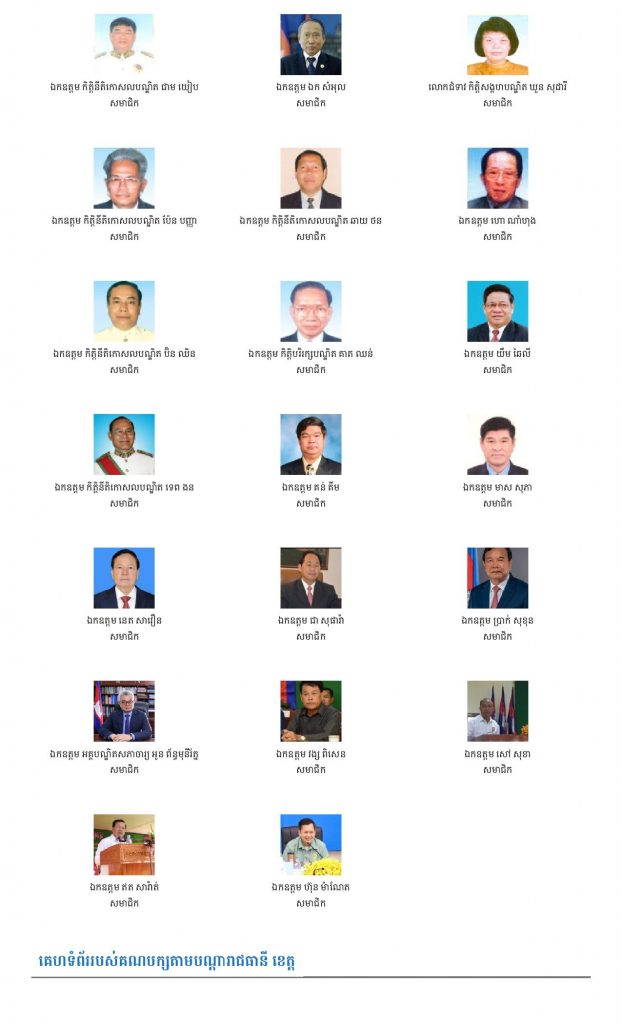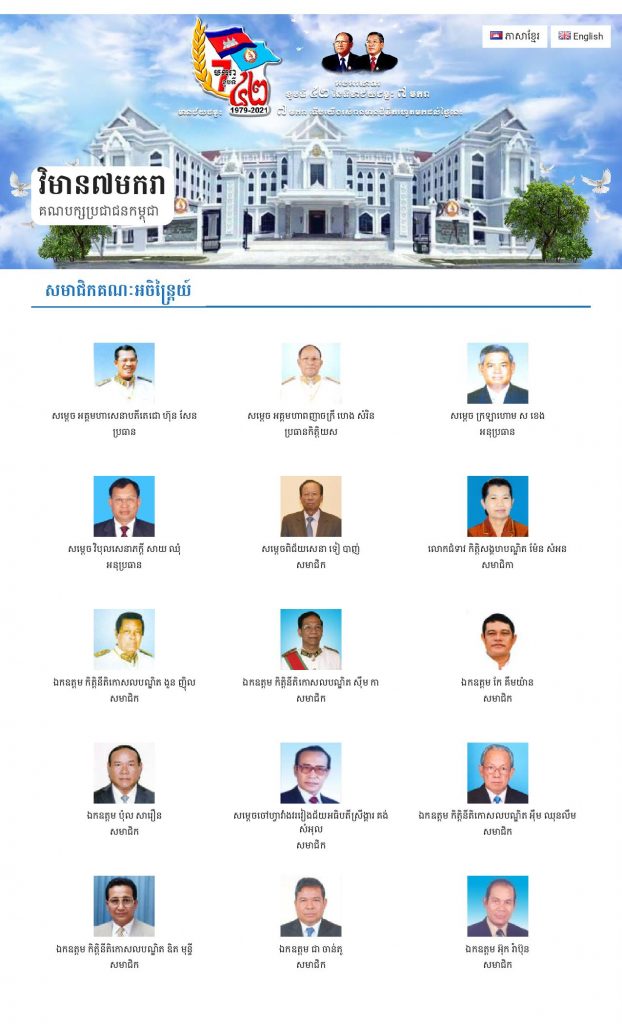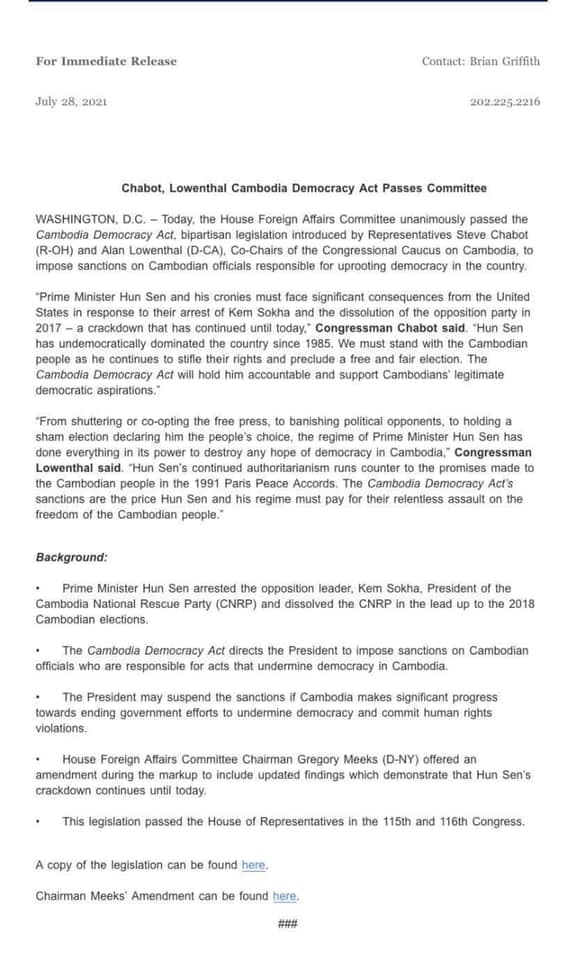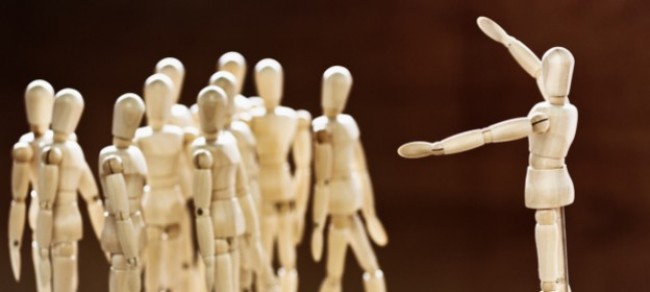Modern Leviathan of Cambodia, Part I
Thomas Hobbs បង្កើតទ្រឹស្តីរដ្ឋធម្មជាតិ(State of Nature) តាមគំនិតអវិជ្ជមាន(Pessimistic)របស់គាត់គឺមនុស្សជាសត្វសង្គមដ៏សាហាវ ដូច្នេះត្រូវតែមានរដ្ឋបុរាណ(Ancient States)ឬរដ្ឋទំនើប(Modern States)ជាអាវក្រោះដើម្បីការពារ។ ប្រជាពលរដ្ឋមានសិទ្ធិស៊ីវិល(Civil Rights/Civil Liberty)ក្នុងការតវ៉ាជាមួយអាជ្ញាធររដ្ឋ(Authoritative Sovereign) តែត្រូវតែហ៊ានលៈបង់អធិបតេយ្យភាពខ្លួនឯង(self sovereign)ដើម្បីសុវត្ថិភាពខ្លួនផ្ទាល់។ ចំណុចនេះត្រូវគ្នានឹងលោកហ៊ុន សែន ដែលបានតាំងខ្លួនឯងជាវីរៈបុរសខាងការពារសុខសន្តិភាពប្រជាពលរដ្ឋ រហូតដល់និយាយថាសិទ្ធិរស់រានមានជីវិតគឺជាអាទិភាពរបស់លោកក្នុងន័យថាឈឺ របួស ដាក់គុក បិទការសែត បិទសិទ្ធិបញ្ចេញមតិ បិទសេរីភាពជួបជុំ សំលាប់ពីរបីនាក់ដើម្បីមនុស្សរាប់រយ រហូតដល់ជាន់ឈ្លីសំលេងប្រជាពលរដ្ឋខ្មែរជិតកន្លៈនគរ ជាដើម គឺលោកអាចធ្វើបានទាំងអស់?
តាមពិតថមម៉ាសហប់ចង់ប្រាប់ប្រជាពលរដ្ឋថាខ្លួនមានសិទ្ធិនិងសេរីភាព តែដោយសម័យនោះព្រះរាជាឬអំណាចផ្តាច់ការខ្លាំងខ្លាពេក និងការរៀបចំប្រព័ន្ធរដ្ឋការពារអំណាចស្មុគស្មាញនិងប្រកបដោយគ្រោះថ្នាក់។ គំនិតហប់ក្នុងការត្រូវហ៊ានលៈបង់ដែនអធិបតេយ្យផ្ទាល់ខ្លួនដើម្បីបានសន្តិសុខត្រូវបានវាយបកដោយអ្នកប្រាជ្ញជំនាន់ក្រោយ បណ្តាលអោយរបបរាជានិយមផ្តាច់ការនិងអធិរាជនិយមដួលរលំនៅសព្វថ្ងៃ ទោះបីត្រូវប្តូរទៅជារបបសាធារណៈរដ្ឋផ្តាច់ការនិងកុម្មុយនីសផ្តាច់ការក៏ដោយ ក៏របបប្រជាធិបតេយ្យនិងការបង្កើតនីតិរដ្ឋពិតប្រាកដបានកំពុងឈានទៅមុខ។
ខុសអ្វីតែប្រទេសកម្ពុជា ក្រោយការលើកបន្តុបដោយវៀតណាម របបគណបក្សប្រជាជនកម្ពុជាបានក្រសោបជាប់កំនិតថមម៉ាស់ហប់និងវាយតំលៃខ្លួនឯងខ្ពស់ក្នុងការការពារសន្តិភាពនិងសន្តិសុខប្រជាពលរដ្ឋ ដោយរមែងមើលឃើញថាប្រជាពលរដ្ឋគឺជាកម្មវត្ថុដែលត្រូវតែស្តាប់បង្គាប់បញ្ជានិងធ្វើតាមរដ្ឋអំណាច។ តាមហប់ ទាំងអ្នកកាន់កាប់អំណាចទាំងប្រជាពលរដ្ឋគឺសុទ្ធសឹងតែមានដែនអធិបតេយ្យខ្លួនឯង ដែលប្រជាការនេះសតិសម្បជញ្ញៈនិងស្មារតីតែងតែត្រឡប់ទៅរករដ្ឋធម្មជាតិ(state of nature)ដែលនុស្សគឺជាសត្វដែលកាប់សំលាប់គ្នាកើតកល្យុគនិងសង្គ្រាមស៊ីវិលឥតឈប់ឈរ ដូច្នេះមានតែមករកនីតិរដ្ឋពិតប្រាកដទើបបាន។
តែនីតិរដ្ឋកម្ពុជាបច្ចុប្បន្នគឺជាវប្បធម៌ទន្ទេញចាំមាត់គ្មានការបដិបត្តិសោះឡើយ។ កម្ពុជាសព្វថ្ងៃមិនទាំងជាប្រជាធិបតេយ្យមិនទាំងជាសាធារណៈរដ្ឋផ្តាច់ការឬកុម្មុយនីសផ្តាច់ការ(Present Cambodia is neither democracy nor republic/monarchy tyrant)! អាចជារដ្ឋអាណាធិបតេយ្យ(anarchical state)ឬរដ្ឋអត់ហេតុផលច្រើនជាង(irrational state)ច្រើនជាង។
ចាប់តាំងពីកកើតជាគណៈបក្សកាន់អំណាចតាក់តែងឡើងដោយប្រទេសវៀតណាមនៅឆ្នាំ១៩៧៩មក យើងឃើញមនុស្សក្នុងបក្សនេះឬអធិបតេយ្យម្នាក់ៗភាគច្រើនដាច់ខាតគឺជាមនុស្សមិនយល់ទេរដ្ឋទំនើប(modern state) នីតិរដ្ឋ(rule of law) ប្រជាធិបតេយ្យ(democracy) និងសិទ្ធិមនុស្ស(human rights)។ និរន្តរភាពនៃបក្សនេះច្បាស់ណាស់ មានអ្នកមានផលប្រយោជន៍ជួយយឹតយោងសន្តោងពីក្រោយខ្នង។ យើងពិនិត្យមើលជាក់ស្តែងនៃសមាជិកអចិន្ត្រៃយ៍(top politburo) គ្រាន់តែប្រព័ន្ធតុលាការមួយគឺមានការទទឹងទិស(messy)និងខ្វះហេតុផល(irrational)រួចបាត់ទៅហើយ៖ ប្រធានតុលាការកំពូលត្រូវលាលែងពីតំណែងបក្ស តែគ្មានទេ មេនគរបាលជាតិនិងមេប៉េអិមជាតិ ជាអ្នកអនុវត្តច្បាប់ត្រូវលាលែងពីតំណែងបក្ស តែគ្មានទេ…ដូច្នេះអោយគេប្រាសចាកអគតិ៤តាមច្បាប់យុត្តិធម៍និងបំរើប្រជាពលរដ្ឋដោយឆន្ទៈពិតប្រាកដមិនមាននិន្នាការលំអៀង បានយ៉ាងណា?ងាកមកកងកំលាំងប្រដាប់អាវុធយោធាវិញ លោកហ៊ុនសែនបង្កើតកងអង្គរក្សដ៏សម្បើមមហិមាសម្រាប់ខ្លួនផ្ទាល់តែបែរដាក់ជាកងទ័ពជាតិប្រើថវិការជាតិ។ កូនប្រុសលោក ទោះចប់បណ្ឌិតដ៏មានកិត្តិយសពីបរទេសយ៉ាងណាក៏ដោយ ក៏លោកអាចបិទភ្នែកបិទត្រចៀកបន្លំខ្លួនជាបណ្ឌិតរំលោភប្រព័ន្ធច្បាប់ដោយមិនលាលែងពីតំណែងបក្សឡើយនៅពេលកាន់ការជាអគ្គមេបញ្ជាការកងទ័ពជាតិ។
ថមម៉ាសហប់គ្រាន់តែបញ្ជាក់ថា៖រដ្ឋផ្តាច់ការគឺពិតជាកន្សោមអំនាចនៃប្រព័ន្ធគ្រប់គ្រងប្រទេស(national systemic based-power)តែកម្ពុជា ក្រោមអំណាចលោកហ៊ុនសែនគឺពិតជាកន្សោមប្រព័ន្ធអំណាចការពារផលប្រយោជន៍ក្រុមគ្រួសារត្រកូលខ្លួនទៅវិញ(family systemic based-power)។





